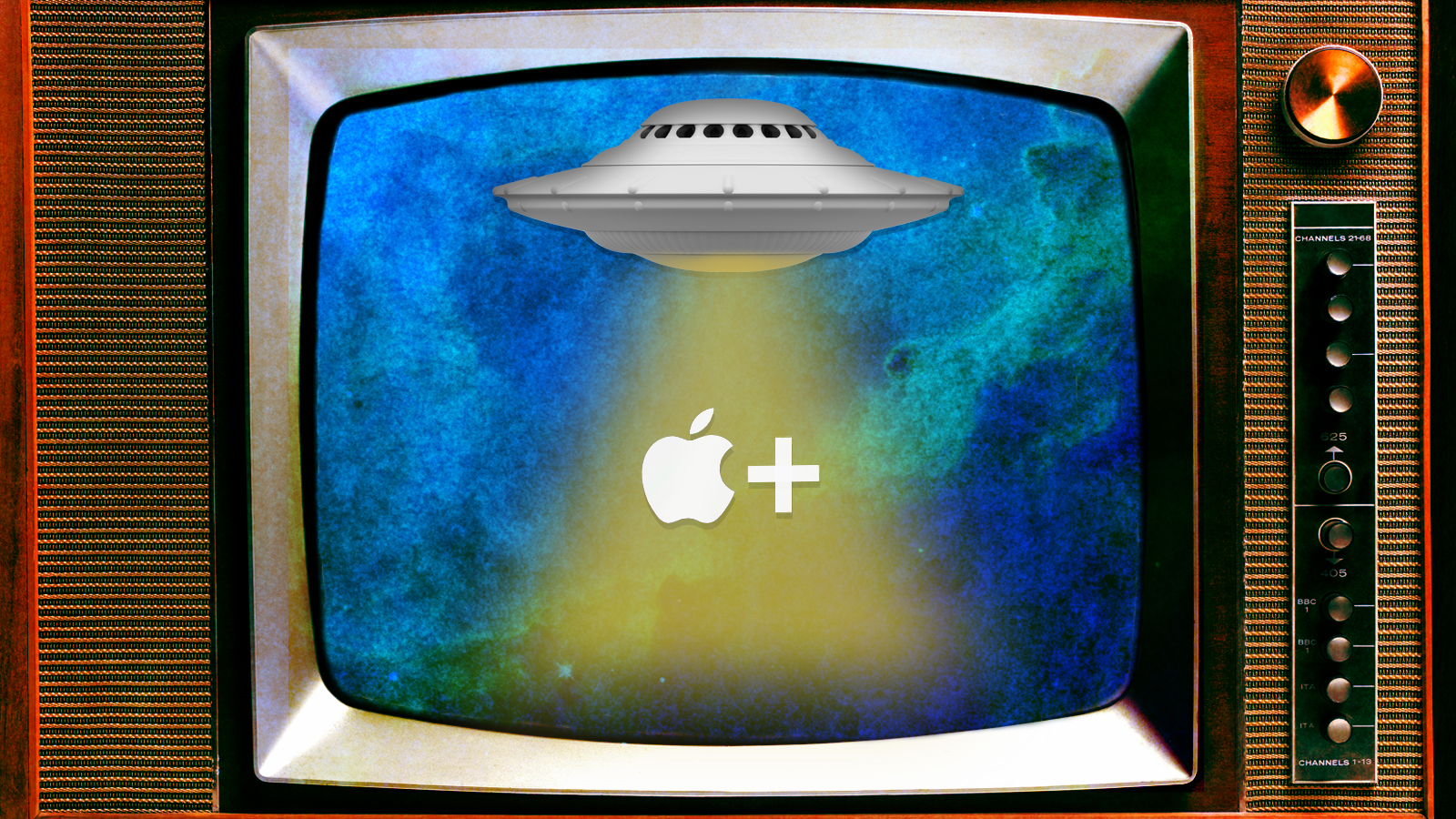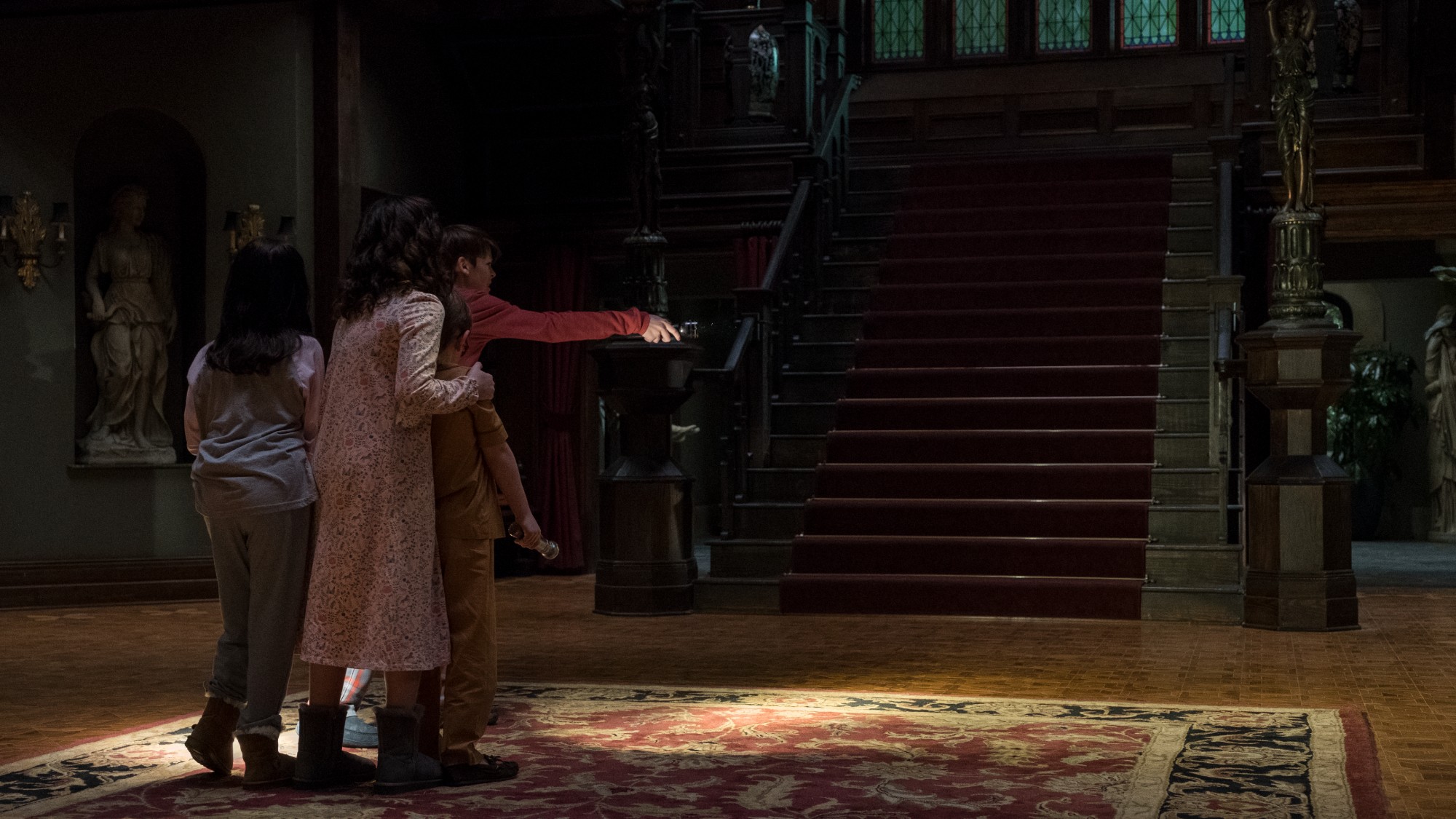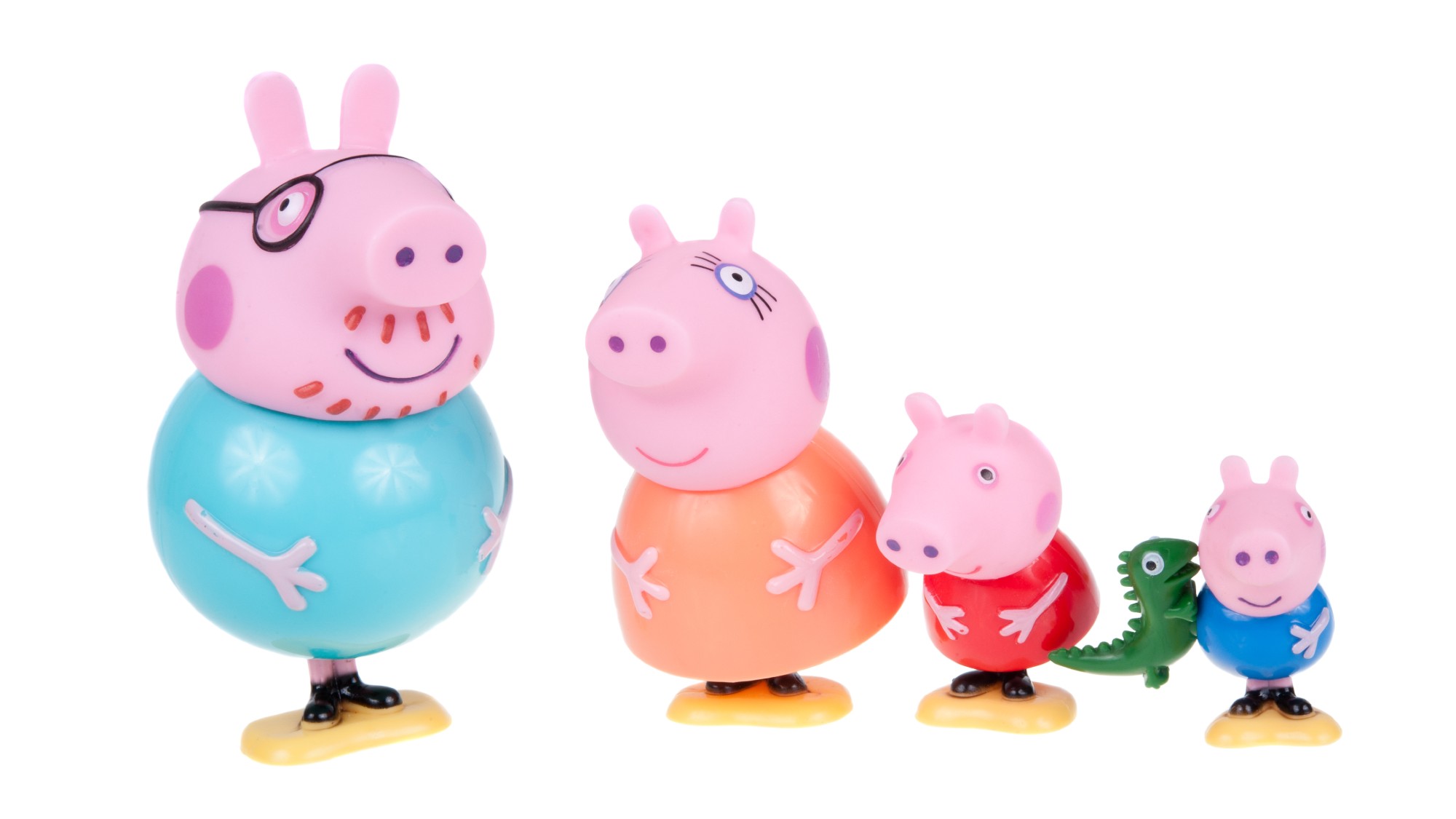How Apple became the king of sci-fi
Apple TV+ has eclipsed other streamers' science fiction offerings


A free daily email with the biggest news stories of the day – and the best features from TheWeek.com
You are now subscribed
Your newsletter sign-up was successful
On Friday, Apple TV+ will debut the second season of "Foundation," an adaptation of Isaac Asimov's classic saga of a waning galactic empire, written in a series of novels over the course of more than 50 years beginning in 1942. Once considered so intricate and dense as to be unfilmable, Foundation has become, instead, the leading edge of the streaming service's transformation into the home of visionary science fiction. Despite debuting its service less than four years ago, Apple TV+ has eclipsed the increasingly moribund basic cable outfit SyFy as television's sci-fi Valhalla and taken successful gambles that competitors like HBO (now Max) passed on. How did they do it?
Late to the streaming party
As Tech Radar's Henry St. Leger wrote recently, "Apple has always been a company focused on aspirational technology and that has carried over into its programming, with thoughtful, well-designed sci-fi series that take us into imaginative visions of what the world could one day be." The company hired veteran programming executive Matt Cherniss in 2017 to create what would be a multi-billion dollar scripted television operation from scratch. And Cherniss clearly made prestige science fiction one of the anchors of the streaming service that launched in November 2019. Two of the first three dramas to debut were sci-fi, including "For All Mankind," showrunner Ronald D. Moore's occasionally corny but heartfelt and gripping paean to the glory of space exploration, which spans decades of alternative history whose pivotal event is the Soviets beating the Americans to the moon.
But the service struggled at first to attract viewers or to separate itself from streaming giants like Netflix and Hulu. And several of Cherniss's sci-fi gambles flopped, including "See," set centuries after a virus deprives human civilization of sight, and a reboot of Steven Spielberg's anthology series "Amazing Stories." It was "Ted Lasso," a goofy comedy about an American football coach hired to manage an English soccer club, that put Apple TV+ firmly on the map. And by then several of Cherniss's big early genre bets were coming to fruition. "Foundation" debuted in September 2021, followed a month later by "Invasion," an elaborate, slow-moving series with multiple, barely-converging narratives set on several continents during an alien invasion of Earth. A few months later, in February 2022, Apple TV+ would drop one of its biggest critical and commercial hits, the science fiction workplace thriller "Severance," about a surgical implant that cognitively "severs" workers from their out-of-office selves.
The Week
Escape your echo chamber. Get the facts behind the news, plus analysis from multiple perspectives.

Sign up for The Week's Free Newsletters
From our morning news briefing to a weekly Good News Newsletter, get the best of The Week delivered directly to your inbox.
From our morning news briefing to a weekly Good News Newsletter, get the best of The Week delivered directly to your inbox.
All three shows share a kind of intricacy that requires patience and attentiveness from viewers, and it is hard to imagine them getting produced, let alone renewed for multiple seasons, on trigger-happy streamers like Netflix. Viewers of "Severance," for example, spend almost the entire season in the dark about what's really going on, and "Invasion" featured a first episode arc for small-town cop Sam Neill that was literally never revisited again. The same goes for this spring's hit "Silo," an adaptation of Hugh Howey's series of novels about the survivors of an unnamed environmental apocalypse who live together underground in a mysterious structure. The first episode's narrative centered around Rashida Jones' Allison, who becomes obsessed with the idea that the Silo's inhabitants are being lied to about conditions above ground. Her character, shall we say, does not return. But audiences lapped it up, and "Silo" was greenlit for a second season.
Audience first
That commitment to the audience is really starting to separate Apple TV+ from the competition. For every "Stranger Things," Netflix has churned out five less successful sci-fi series that get canceled after one or two seasons, in the process developing a reputation for ruthlessly axing anything that doesn't make an immediate splash — like last year's mind-bending "1899," which was unceremoniously dumped despite a brilliant, season-ending cliffhanger. "We have never canceled a successful show," Netflix CEOs Ted Sarandos and Greg Peters told Bloomberg in January. "A lot of these shows were well-intended but talk to a very small audience on a very big budget."
Apple TV+, on the other hand, doesn't seem to care so much about the size of the audience for any particular show. That doesn't mean that everything is brilliant (this year's hot mess of a climate change anthology "Extrapolations," for one) but showrunners are given time to build an audience rather than expecting a hit right away. "Invasion," whose first season reportedly cost $200 million to produce, did not even get particularly favorable reviews (Vulture's Kathryn VanArendonk said that it "made me root for the aliens"), but Apple nevertheless handed its creators another pile of cash to make a second season.
Maybe that makes the relatively small library that critics scoffed at when the service launched in 2019 a strength — rather than throw money at 50 different shows to see what sticks, alienating audiences in the process, Apple is laying down markers with big, bold science fiction and following through on their promises. Of course, it helps that the company "has an absurd amount of money in the bank," as The Verge's Julia wrote presciently just before the service's launch in 2019. The continued dominance of its other products means that it can afford to risk billions on pricey genre shows that other networks and streamers might not even consider.
A free daily email with the biggest news stories of the day – and the best features from TheWeek.com
That certainly describes "Foundation," which multiple studios and networks optioned and then abandoned over the years, most recently HBO, which had hired "Interstellar" screenwriter Jonathan Nolan to adapt it into a prestige series. As Grantland's Ben Lindbergh wrote at the time, HBO was "scouring the universe for a sci-fi tentpole" to complement its "Game of Thrones" fantasy behemoth. Instead, Max went another decade before finally finding a hit in the dystopia/science fiction genre with this year's "The Last of Us", and seemingly left the field wide open to competitors, a space that Apple TV+ has happily, and competently, filled.
David Faris is a professor of political science at Roosevelt University and the author of "It's Time to Fight Dirty: How Democrats Can Build a Lasting Majority in American Politics." He's a frequent contributor to Newsweek and Slate, and his work has appeared in The Washington Post, The New Republic and The Nation, among others.
-
 The environmental cost of GLP-1s
The environmental cost of GLP-1sThe explainer Producing the drugs is a dirty process
-
 Greenland’s capital becomes ground zero for the country’s diplomatic straits
Greenland’s capital becomes ground zero for the country’s diplomatic straitsIN THE SPOTLIGHT A flurry of new consular activity in Nuuk shows how important Greenland has become to Europeans’ anxiety about American imperialism
-
 ‘This is something that happens all too often’
‘This is something that happens all too often’Instant Opinion Opinion, comment and editorials of the day
-
 February TV brings the debut of an adult animated series, the latest batch of ‘Bridgerton’ and the return of an aughts sitcom
February TV brings the debut of an adult animated series, the latest batch of ‘Bridgerton’ and the return of an aughts sitcomthe week recommends An animated lawyers show, a post-apocalyptic family reunion and a revival of a hospital comedy classic
-
 The 8 best hospital dramas of all time
The 8 best hospital dramas of all timethe week recommends From wartime period pieces to of-the-moment procedurals, audiences never tire of watching doctors and nurses do their lifesaving thing
-
 The 8 best horror series of all time
The 8 best horror series of all timethe week recommends Lost voyages, haunted houses and the best scares in television history
-
 Scoundrels, spies and squires in January TV
Scoundrels, spies and squires in January TVthe week recommends This month’s new releases include ‘The Pitt,’ ‘Industry,’ ‘Ponies’ and ‘A Knight of the Seven Kingdoms’
-
 The best drama TV series of 2025
The best drama TV series of 2025the week recommends From the horrors of death to the hive-mind apocalypse, TV is far from out of great ideas
-
 The 8 best comedy series of 2025
The 8 best comedy series of 2025the week recommends From quarterlife crises to Hollywood satires, these were the funniest shows of 2025
-
 A postapocalyptic trip to Sin City, a peek inside Taylor Swift’s ‘Eras’ tour, and an explicit hockey romance in December TV
A postapocalyptic trip to Sin City, a peek inside Taylor Swift’s ‘Eras’ tour, and an explicit hockey romance in December TVthe week recommends This month’s new television releases include ‘Fallout,’ ‘Taylor Swift: The End Of An Era’ and ‘Heated Rivalry’
-
 Daddy Pig: an unlikely flashpoint in the gender wars
Daddy Pig: an unlikely flashpoint in the gender warsTalking Point David Gandy calls out Peppa Pig’s dad as an example of how TV portrays men as ‘useless’ fools
